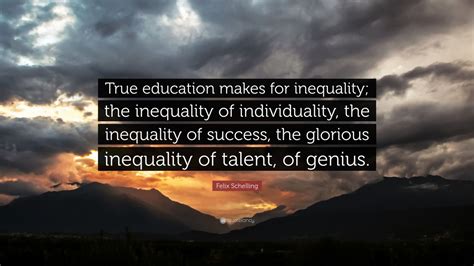A Quote by Helmut Schoeck
Overwhelming and astounding inequality,especially when it has an element of the unattainable, arouses far less envy than minimal inequality, which inevitably causes the envious to think: I might have been in his place.
Related Quotes
There have always been two theories about inequality. One is that it reflects just deserts. The other is that there are large elements of exploitation and inequality of opportunities. The evidence is overwhelmingly that the increase in inequality is associated with those negative factors. If it were all social contribution, then when the top did better, they would be contributing to everybody's well-being. That trickle-down hasn't happened. We've seen median income, people in the middle, actually worse off than they were 25 years ago.
Most people believe that inequality is rising - and indeed it has been rising for a while in a number of rich countries. And there is lots of talk and realization of this. It's harder to understand that at the same time, you can actually have global inequality going down. Technically speaking, national inequality can increase in every single country and yet global inequality can go down. And why it is going down is because very large, populous, and relatively poor countries like India and China are growing quite fast.
In the U.S. when people like me started writing things about inequality, the economic journals had no classification for inequality. I couldn't find where to submit my inequality papers because there was no such topic. There was welfare, there was health issues, there was trade obviously. Finance had hundreds of sub groups.
Egalitarians create the most dangerous inequality of all - inequality of power. Allowing politicians to determine what all other human beings will be allowed to earn is one of the most reckless gambles imaginable. Like the income tax, it may start off being applied only to the rich but it will inevitably reach us all.



































